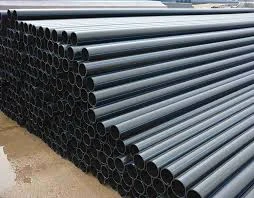Dec . 05, 2024 03:47 Back to list
sprinkler hdpe pipe
Understanding Sprinkler HDPE Pipes An Essential Component for Efficient Irrigation Systems
Irrigation plays a critical role in agriculture, landscaping, and various horticultural practices. As the demand for efficient water management increases, so does the need for high-performance irrigation systems. One of the most significant components of modern irrigation systems is the sprinkler HDPE (High-Density Polyethylene) pipe. This article explores the merits and applications of HDPE pipes in sprinkler systems, highlighting their advantages and offering insights into their optimal usage.
What is HDPE?
High-Density Polyethylene (HDPE) is a thermoplastic polymer made from petroleum. Its impressive strength-to-density ratio makes it ideal for a variety of applications, particularly in water management systems. HDPE pipes are known for their durability, flexibility, and resistance to various chemicals, making them an excellent choice for irrigation systems, especially under challenging environmental conditions.
Advantages of HDPE Pipes in Sprinkler Systems
1. Durability and Longevity HDPE pipes exhibit excellent resistance to corrosion, ultraviolet (UV) rays, and extreme temperatures. They can withstand harsh environmental factors, ensuring a long lifespan that often exceeds 50 years with proper maintenance. This resilience makes them a cost-effective solution for irrigation projects.
2. Flexibility and Lightweight Unlike rigid piping materials such as PVC or metal, HDPE pipes are highly flexible, allowing them to be easily installed around obstacles and in uneven terrains. Their lightweight nature also simplifies transportation and installation processes, reducing labor costs and time.
3. Low Maintenance The smooth interior surface of HDPE pipes minimizes friction, reducing the likelihood of clogs and the accumulation of mineral deposits. This feature leads to lower maintenance costs and less frequent repairs compared to traditional piping systems, ultimately enhancing the efficiency of the sprinkler system.
4. Environmental Benefits HDPE is a recyclable material, making it an environmentally friendly option. Using HDPE pipes in irrigation can contribute to sustainable farming practices, benefiting both the environment and the agricultural community. Moreover, the efficiency of sprinkler systems using HDPE contributes to better water conservation, a pressing concern in many regions facing water scarcity.
sprinkler hdpe pipe

5. Versatile Applications HDPE pipes can be used in various types of sprinkler systems, including agricultural, residential, and commercial landscapes. They can easily handle the pressure variations required in different irrigation scenarios, making them suitable for both high-volume farming and small-scale gardening.
Installation and Best Practices
To maximize the benefits of HDPE pipes in sprinkler systems, proper installation is crucial. Here are some best practices to consider
1. Planning and Design Before installation, assess the irrigation needs and create a detailed plan. Properly calculating the water requirements and layout will ensure optimal performance of the sprinkler system.
2. Use the Right Fittings When connecting HDPE pipes, ensure that the fittings are compatible and durable. Mechanical, fusion, or electrofusion methods can be employed to create secure joints, depending on the specific application and environment.
3. Maintain Proper Pressure HDPE pipes are designed to handle varying pressure levels, but maintaining proper pressure during operation is essential. Monitoring pressure levels can help prevent pipe damage and ensure the system performs efficiently.
4. Regular Inspections Conduct routine checks of the sprinkler system to identify leaks, clogs, or any signs of wear. Early detection of potential issues can save time and money in the long run.
Conclusion
Sprinkler HDPE pipes are indispensable for effective irrigation management in today’s agricultural landscape. With their numerous advantages—durability, flexibility, low maintenance, and environmental sustainability—HDPE pipes are well-suited for a wide range of applications. By adhering to best practices during installation and maintenance, users can ensure the efficiency and longevity of their sprinkler systems. Embracing the technology that HDPE pipes offer not only enhances irrigation efficiency but also contributes to the sustainable use of water resources, an essential aspect of modern agriculture. Whether for large agricultural fields or small residential gardens, HDPE pipes provide a reliable solution for water management needs.
-
Premium HDPE Water Supply Pipes: Durable & Leak-Proof
NewsAug.03,2025
-
Premium PVC-M Water Supply Pipe - Durable & Efficient
NewsAug.02,2025
-
Premium PP Welding Rod: GPT-4 Turbo Enhanced
NewsAug.01,2025
-
HDPE Drainage & Irrigation Pipe - Durable, Efficient Solutions
NewsAug.01,2025
-
Premium PVC Transparent Pipe: Durable & Clear Solutions
NewsJul.31,2025
-
High-Quality UPVC Electrical Pipe for Safe Wiring Solutions
NewsJul.30,2025

